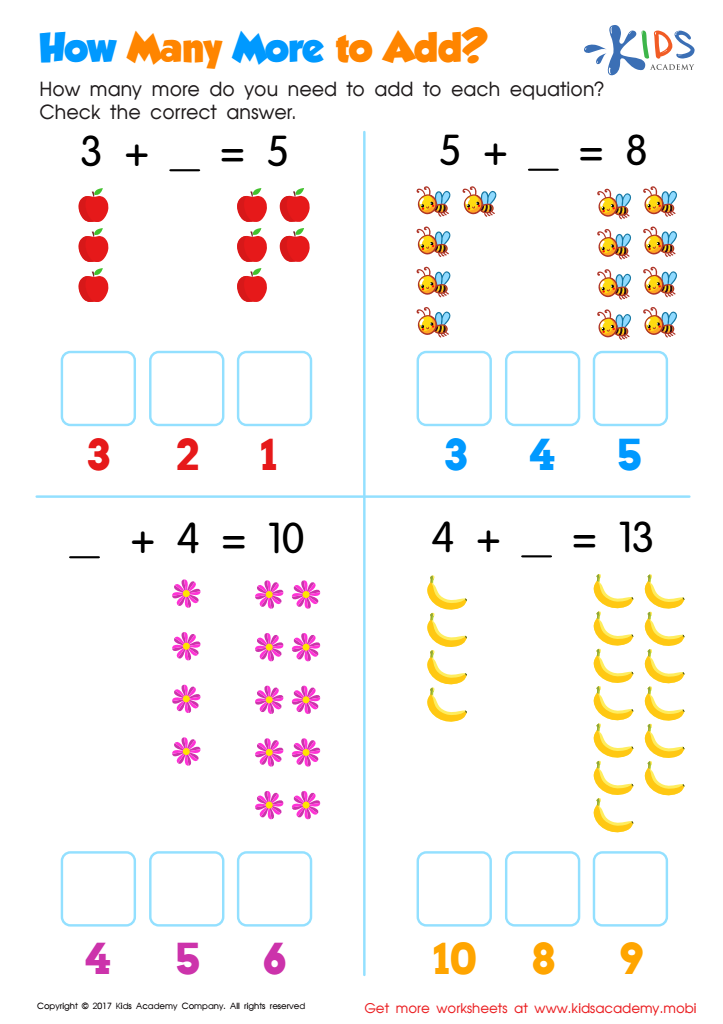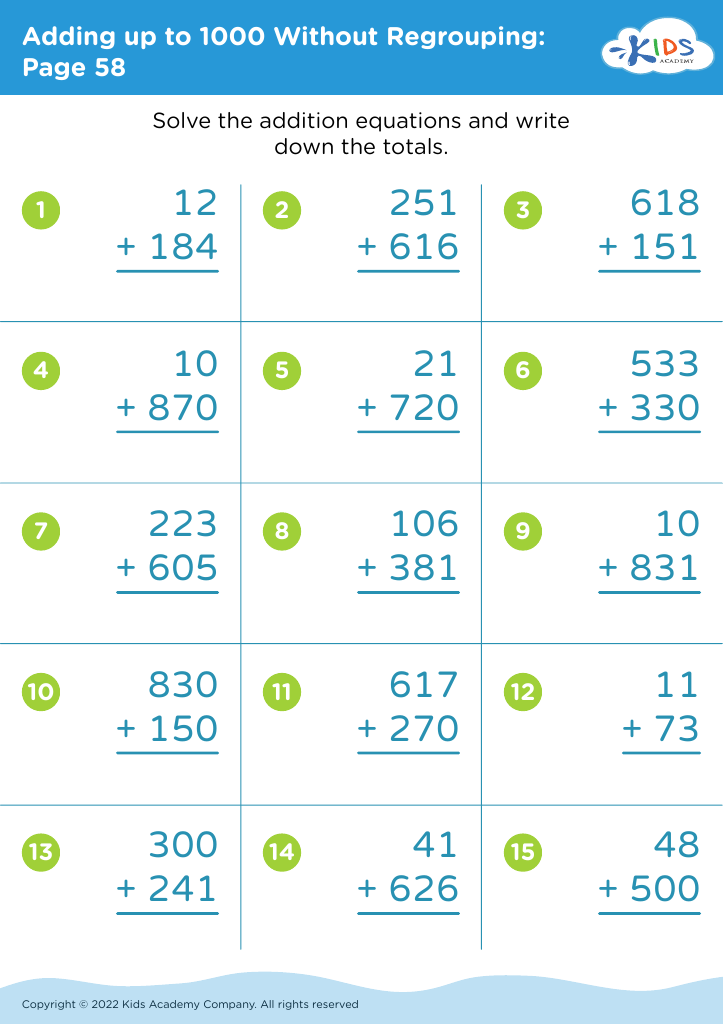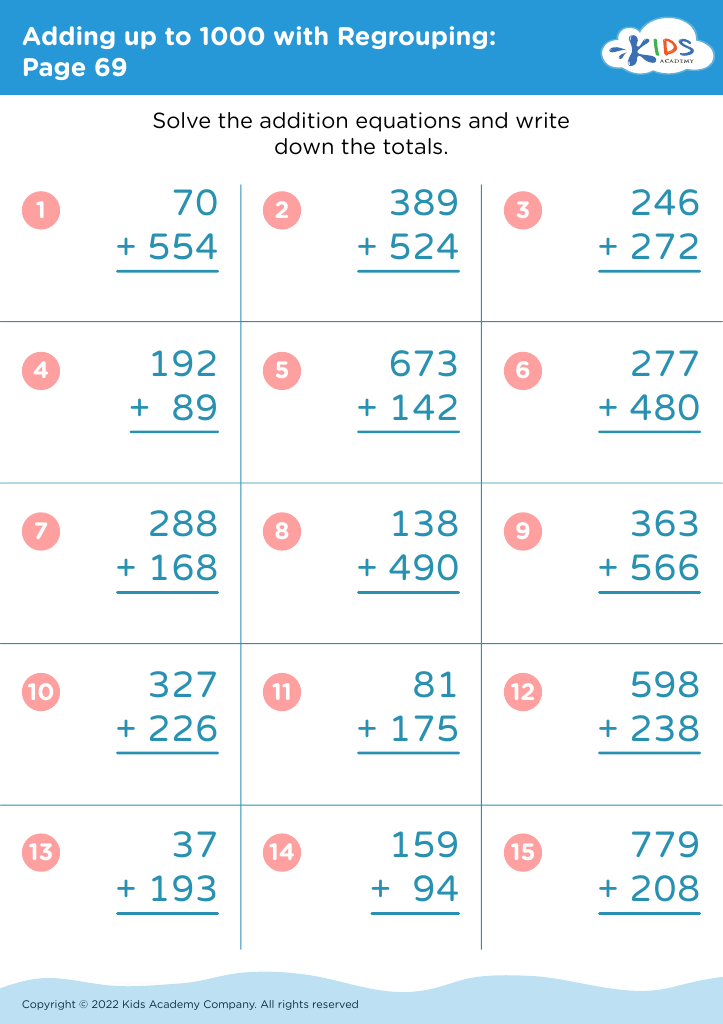Comparison Skills Addition Worksheets for Ages 4-7
4 filtered results
-
From - To
Boost your child's math confidence with our "Comparison Skills Addition Worksheets for Ages 4-7." These engaging, expertly designed worksheets help young learners master addition while developing essential comparison skills. Tailored for early grade students, they use fun visuals and simple exercises to make learning enjoyable and effective. Each worksheet encourages children to compare sums, enhancing their critical thinking and problem-solving abilities. Perfect for in-class activities or at-home practice, our worksheets align with educational standards, ensuring your child builds a strong mathematical foundation. Start your child’s journey to math success today!


How Many More to Add Worksheet
Comparison skills and basic addition are foundational mathematical concepts and crucial cognitive skills for children aged 4-7. These early math skills are not just about learning numbers and operations but also about developing critical thinking and problem-solving abilities that will be beneficial throughout a child's academic journey and life.
Firstly, comparison skills – such as understanding more than, less than, and equal to – enable children to organize and categorize information, a fundamental ability that supports logical reasoning and decision-making. For instance, these skills can help children compare quantities effectively, fostering an understanding of numerical relationships and patterns which are essential for advanced math topics.
Secondly, addition introduces children to the idea of combining quantities. Early mastery of addition lays the groundwork for all subsequent arithmetic operations. It also reinforces cognitive development by improving memory, attention to detail, and the ability to follow multi-step processes.
Engaging young children in comparing numbers and simple addition games makes learning fun and interactive, which can increase their interest and confidence in math. Early exposure to these concepts helps build a strong foundation for future mathematical learning, enhancing academic success and everyday life skills. Overall, nurturing comparison skills and addition in early childhood equips young learners with essential tools for their intellectual and personal growth.



 Assign to My Students
Assign to My Students





















